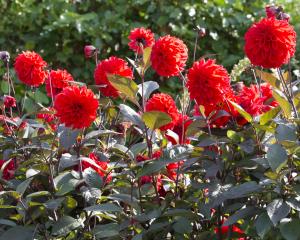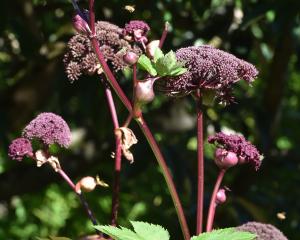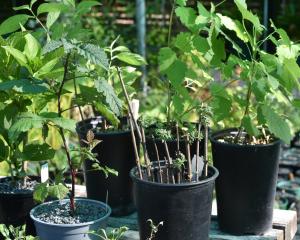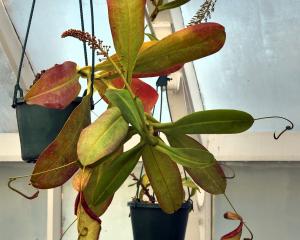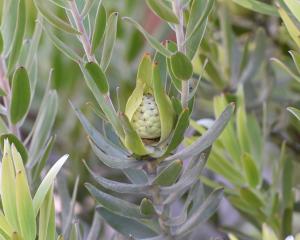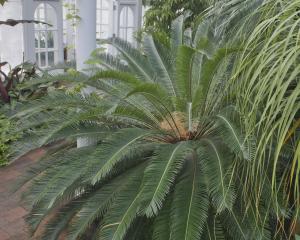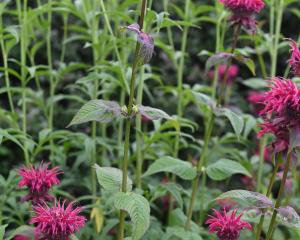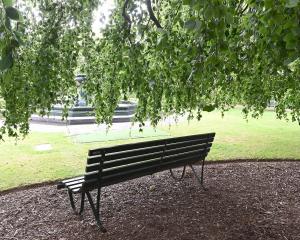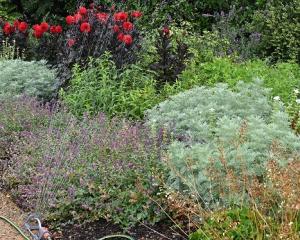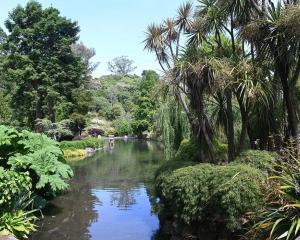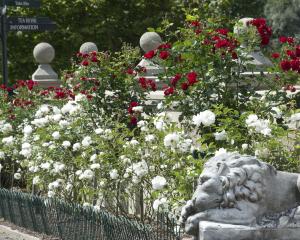
Entelea arborescens grows rapidly into a broad, tropical-looking tree about 6m tall. It has huge, thin leaves with jagged margins. Abundant white flowers in summer provide a generous display.
The seed capsules are as ornamental as the flowers. They look like lime green pom poms. Over time they fade to chestnut brown but retain their long, stiff bristles for many months.
Inside the capsules are small, hard seeds that germinate freely and can remain dormant for a long time. The plant produces these robust seeds to ensure its own replacement – with a lifespan of only 10 to 15 years, it must be one of our most transient native tree species. Racing towards the light, it doesn’t have time for dense growth. It produces one of the lightest woods in the world, rivalling balsa.
Growing whau is gratifying and worthwhile, but in Dunedin it is very far from its natural range, so be extremely selective with planting location. In the wild, it thrives in clearings in warm, coastal forests. Think sheltered, frost-free sites with rich soil and excellent drainage — stream sides, rocky slips, steep faces and forest margins.
In Dunedin Botanic Garden, whau is planted under the shelter of other trees to protect those big, floppy leaves from frosts and our chilly southern winds. Discover them in the native plant collection, in a tree and shrub border running parallel to Lovelock Avenue.
Garden Life is produced by Dunedin Botanic Garden. For further information contact Kate Caldwell.

